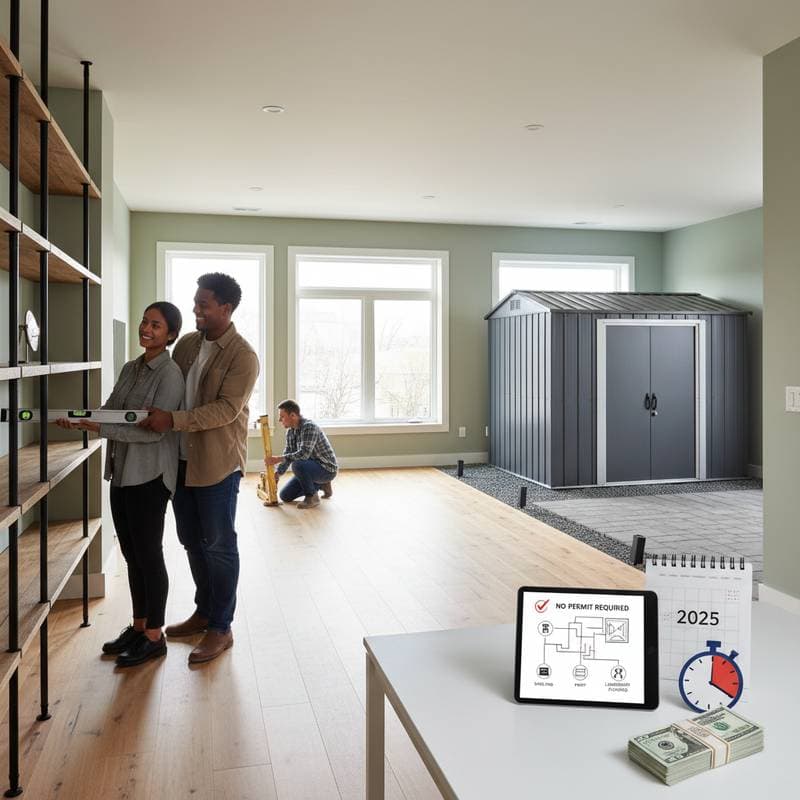Cut Permit Waits in Half with Fast-Track Strategies
Lengthy permit approvals often delay construction schedules, raise expenses, and create frustration for homeowners and builders alike. Each day spent waiting for paperwork means the project remains idle. Fortunately, numerous jurisdictions provide options to accelerate the process. Proper preparation and strategic approaches enable submission to approval in less time, all while upholding safety and quality standards.
This guide details methods to expedite permit approvals through fast-track techniques, thorough documentation, and effective coordination with professionals.
Key Fast-Track Strategies
1. Prepare a Complete Application
Delays frequently arise from incomplete submissions or ambiguous drawings. Prior to filing, confirm inclusion of all necessary architectural, structural, electrical, and mechanical plans. Include energy compliance certifications, engineering computations, and detailed site plans. A comprehensive submission allows reviewers to process it on the first pass, avoiding requests for revisions.
Cost: Expect minimal expenses for scanning, printing, and initial plan review, typically totaling less than a few hundred dollars.
DIY vs Pro: Homeowners may collect standard forms independently, yet a seasoned designer or permit expediter should examine the package for precision.
2. Leverage Pre-Approved Plans and Templates
Utilize standardized or pre-approved design templates available from local building departments. These resources, often tailored to common projects like residential additions or kitchen remodels, align with current codes and reduce scrutiny during review. Obtain them from the jurisdiction's website or office to integrate into your application.
Cost: Generally free or available at a nominal fee for copies.
DIY vs Pro: Suitable for DIY users familiar with basic designs; professionals can customize templates to fit unique project needs efficiently.
3. Request a Fast-Track Review
Several municipalities provide expedited or express permit services for eligible projects, including interior renovations or modest expansions. These initiatives promise evaluation within a handful of business days, provided the application arrives fully prepared.
Cost: Additional fees range from 10 to 25 percent above standard rates, though reductions in labor and carrying costs usually justify the investment.
DIY vs Pro: Homeowners can initiate the fast-track request, but contractors versed in local protocols ensure compliance with all criteria.
4. Coordinate with Inspectors Early
Establish contact with building inspectors before submitting plans. Schedule preliminary meetings to discuss project specifics, potential issues, and code interpretations. This proactive dialogue uncovers obstacles early and streamlines the approval path.
Cost: Time investment with no direct fees; virtual or in-person consultations vary by department.
DIY vs Pro: DIY approaches work for simple queries, while architects or engineers handle technical discussions for complex builds.
5. Hire a Permit Expediter
Permit expediters possess in-depth knowledge of regional processes and established connections with department staff. They track application progress, address revision requests promptly, and return approved documents without delay.
Average Cost: One to three percent of the overall project budget.
Best For: Extensive remodels, ground-up constructions, or initiatives spanning multiple agencies like planning, fire safety, and public utilities.
Money-Saving and Efficiency Tips
- Verify all contractor licenses prior to application submission.
- Opt for digital submissions to eliminate postal delays.
- Combine interconnected permits, such as those for electrical and plumbing work, into one unified review.
- Retain records of every interaction with the permitting authority for future reference.
These practices promote clarity and minimize unnecessary visits to the department.
When to Hire a Professional
Engage experts for projects involving structural modifications, zoning exceptions, or intricate systems. Licensed architects or engineers verify code adherence in designs, whereas expediters oversee submissions and updates. Select consultants experienced with your area's digital permitting tools and up-to-date regulations.
Steps to Accelerate Your Project
Fast-track permitting demands foresight, meticulousness, and ongoing dialogue. Assess your project details first and pinpoint local accelerated review options. Assemble documents ahead of schedule, validate code alignments, and sustain reviewer communications. Employ an expediter as required to propel the process forward. Implement these tactics to halve wait times, safeguard finances, and launch construction assuredly.











